Last night, Tony Abbott, who has routinely been denounced as an ‘extremist’ by progressives of all stripes1 was elected the 28th Prime Minister of Australia. Since his role as a senior Minster in the Howard government between 1998 and 2007, and his election as leader of the Opposition some four years ago, Abbott’s image has been cultivated by his opponents on the broad left (both within and without his party) as a political traditionalist motivated by reactionary ideas and retrograde policy. Despite the past nine weeks of ‘scare campaigning’, ironically from those who most loudly decry the so-called ‘politics of fear’, it appears that somebody did in fact vote for him after all. James Allan today writes in Quadrant Online:
“Who would have thought it? Not a myriad of ABC and left-wing (sorry for the redundancy there) commentators, who again and again and again claimed Mr. Abbott was unelectable. Apparently the voters of Australia disagreed. What an ‘unshock’?”2
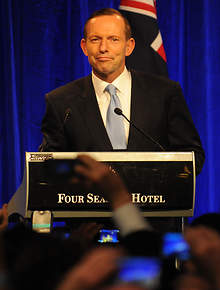
Tony Abbott, Prime Minister in waiting, delivering his post election victory speech at the Four Seasons Hotel, Saturday 7 September 2013.
Perhaps the result is not as ‘unshoking’ as Allan may think. Other than allegedly one editorial in the Melbourne Age, it was clear that the mainstream press strongly endorsed a change of government in the weeks leading up to last Saturday’s polls. That of course is hardly surprising given the political anarchy on the Labor front bench which would understandably embarrass even the most ideologically committed social democrat in Australia. Perhaps the Coalition’s greatest campaign asset was the ‘selfie’ obsessed incumbent Labor Prime Minister himself, who seemed to have invested a great deal in largely ephemeral issues such as ‘marriage equality’. Tertiary concerns such as these may be entertained as major domestic political causes only if a society can afford to distract itself with what are essentially whimsical momentary fads. Under Labor’s disastrous six year economic stewardship, it appears that the country simply did not believe that it had that luxury.
In the wake of the post-election euphoria, it is tempting to see this result as a victory for conservatism. However, putting the party politics aside, some questions ought to be considered by voters who are less concerned with party brands or labels, and more interested in the trends and ideas that animated the campaign trail. This is particularly the case for conservative voters who may, perhaps naively, believe that Abbott’s victory signals some kind of right-wing resurgence on the Australian political landscape. This is because the path to victory was not exactly paved with a robust apologia for conservatism, but at the very best, a nuanced opposition to the Labor government on essentially liberal terms. Those interested in the future of conservative politics in Australia may wish to contemplate the following questions:
Is it possible to be a mainstream conservative and not rely on progressive statist policies (such as a paid parental leave scheme) that seek to re-engineer the direction of social trends3 which are themselves caused by other progressive statist policies (such as the aggressively prosecuted ideology of feminist careerism directed at young women4) and to do so without repudiating those progressive policies responsible for the ‘problems’ one wishes to correct,5 even if similar ‘solutions’ have proven themselves ineffective in correcting those very ‘problems’ elsewhere and in the past?6
Is it possible to be a mainstream conservative and not rely on ethnic pre-selection strategies to win seats which have already become, or are rapidly becoming riddled with urban minority enclaves,7 while celebrating this as a political boon, or a sign of the “diversity, the richness, the multiculturalism of modern Australia”?8
Is it possible to be a mainstream conservative and not fatuously denounce any criticism of cultural balkanisation or the growth of anti-Western sentiment among some demographic sub-groups, by stating that one is “the sworn enemy, the sworn enemy of anyone who seeks to divide Australian from Australian”?9
Is it possible to be a mainstream conservative and not feel the need to announce that one will be an “Asia First” national leader when elected?10
Is it possible to be a mainstream conservative and consider one’s country to be a homeland, and not a strip-mall which is “once more open for business”?11
Is it possible to be a mainstream conservative and also be worried about the heavy concentration of media ownership, even if on this one occasion the ‘other side’ falls out of favour with those owners?
Is it possible to be a mainstream conservative and not feel the need to ‘outleft the left’ with ideas and rhetoric seemingly designed to ‘prove’ how ‘unracist’, ‘modern’, ‘tolerant’ and ‘relevant’ one may be, as illustrated above?
In fairness to Abbott, his position as a candidate aspiring to national office (the highest office, no less) will necessarily require coalition building with the electoral blocks necessary to (a) gain the number of seats needed to form government in the House of Representatives, and (b) ensure a sufficient swing in the Senate towards that government, so that it is capable of governing once it is elected. The fact that this requires a shift to the left on major, civilisation defining issues and concerns (even if only in the rhetoric used to sell a political message) reminds us how far the culture war has been lost by the ‘right’ in this country.
To avoid any misunderstanding, Abbott’s victory is a far better outcome for Australia than the retention of government by the Labor Party. Be that as it may, it cannot be said that the victory is a repudiation of liberalism as such, or a vindication of traditionalist conservatism in any meaningful way. If the answer to the above questions is ‘no’ then we have either witnessed the death of conservative politics as a force capable of winning office in its own right, or the bankruptcy of the party political system as a vehicle for Western cultural restoration along traditionalist lines. Although this is an admittedly pessimistic reflection on what has been the election of an ‘official’ conservative, it is nevertheless difficult not to draw such a conclusion.
It has been said that elections in liberal democracies are fought in the ‘centre’ of political discourse. This is perhaps even more the case in systems where voting is compulsory, as it is in Australia. When a candidate for office therefore feels the need to appeal to his base, he has (subconsciously perhaps) conceded defeat. In light of this, Julia Gillard’s disgraceful and misandrist speech to her party’s women’s group on 11 June12 can be understood as such a concession of defeat. Perhaps the ‘gay’ identity politics behind Kevin Rudd’s repetitive appeal to ‘marriage equality’ was also such a concession. Abbott’s refusal to go ‘hard core’ but instead embrace a more counter-propositional stance during his campaign may therefore ironically be a sign of strength and confidence, even if it disappoints committed conservatives who form the core of his support base.
Unfortunately, the result is that traditionalists who rightly believe any compromise with liberalism is a gradual capitulation to leftist initiatives may be left feeling partly betrayed, even in the wake of an electoral victory. That is a sad but unavoidable result of our democracy. It is also not difficult to imagine a parallel ‘crisis’ among ideological leftists on the other side of the political spectrum. They, however, will enjoy a broadly leftward drifting public consensus. The object of their fear would not be the spectre of a counter-revolution, an electorally viable illiberal reaction with mass public support; no, at most they will suffer a dissatisfaction with the pace of progressive social reform, slowed or stunted as it may be, but never reversed.
What then, are the alternatives available for political traditionalists? The answer is perhaps more obvious than it seems. If Abbott needed to adjust his image and alter his political message to achieve electoral victory, he needed to do this due to the pressures of public opinion. Clearly, he is subject to the same forces that all politicians fear when going into elections: the public mood and social trends. Change that mood and those trends, and the behaviour of the political class will need to change with them. Of course, if there is any constant in politics, it is this: that all politicians are motivated by the fear of falling out of public favour and losing office. This also means that only the most vocal and vociferous interests get their attention. Those who are silent, politely waiting for their due, are unlikely to be of any interest of mainstream policy analysts.
The reason why the traditionalist struggle for the future of Western civilisation is referred to as the culture war is because the struggle itself is a cultural, not a political one. Cultures determine the nature of politics in a society; change the culture and the politics will follow. Being seen, ensuring that your vote is not a ‘sure thing’ for mainstream conservative candidates is one way of shaping the political culture. The silent or passive have no impact, and that is perhaps the most important lesson Australian traditionalists can learn from Saturday’s electoral outcome. Now is not the time to go into political hibernation. Now is the time to escalate grass-roots activism, strike while the iron is hot, and ensure that we are not taken for granted over the next electoral cycle. The most effective way we can achieve this is by proving to the political class that forsaking us is electorally unwise, and the best way we can send that message is by building a strong traditionalist community, and acting accordingly. Abbott’s campaign may have ended on Saturday, but ours has only entered a new phase tonight.
– SydneyTrads Editors
End notes
- Notable and most recent examples: “We can beat extremist Abbott: Rudd” Australian Financial Review online (28 August 2012 @ 12:13pm, updated 31 August 2012 @ 12:47am) <www.afr.com> (accessed, 8 September 2013) and Alan Stokes, “Reasons to be cheerful about Tony Abbott” Sydney Morning Herald online (4 September 2013) <www.smh.com.au> (accessed, 8 September 2013).
- James Allen, “Morning in Australia” Quadrant Online (8 September 2013) <www.quadrant.org.au> (accessed, 8 September 2013).
- Joe Kelly with Mitchell Nadin, “Tony Abbott bring zeal to paid parental leave scheme” The Australian online (18 August 2013 @ 3:05pm) <www.theaustralia.com.au> (accessed, 8 September 2013).
- This and related issues are discussed broadly in Philip Longman, The Empty Cradle (Basic Books, 2004) and also Charles Murray, Coming Apart (Crown Forum, 2012).
- Eva Cox, “Tony Abbott’s paid parental leave scheme. Why aren’t feminists getting on board” Mama Mia online (7 May 2013 @ 6:53am) <www.mamamia.com.au> (accessed, 8 September 2013).
- Elizabeth Badinter, “Why are rich nations’ birth rates in freefall?” CNN online (15 May 2012) <edition.cnn.com> (accessed, 8 September 2013, updated 4:00pm).
- Steve Lewis, “Liberal Party swats the Wasp type with ‘more inclusive’ approach” The Daily Telegraph online (11 May 2013 @ 12:00am) <www.thedailytelegraph.com.au> (accessed, 8 September 2013).
- Tony Abbott, Address to the Victorian Liberal Party Multicultural Dinner, Clayton South, Victoria (10 April 2013) <www.tonyabbott.com.au> (accessed, 8 September 2013).
- Tony Abbott, Address to Iftar Dinner, Sydney, 5 August 2013, as reported in “Abbott the ‘Sworn Enemy’ of Divisiveness” The Australian online (5 August 2013) <www.theaustralian.com.au> (accessed, 1 September 2013). See also: Editorial, “Come See John, Tony and Arthur’s Shiny New Modern and Progressive Sydney” SydneyTrads (2 September 2013) <sydneytrads.com> (accessed, 8 September 2013).
- Peter Hartcher, “I would be an Asia-first prime minister, says Abbott” Sydney Morning Herald online (4 September 2013) <www.amh.com.au> (accessed, 8 September 2013).
- Tony Abbott, Electoral Victory Speech, as reported in Ben Pacham and Sid Maher, “Tony Abbott claims victory and claims Australia is ‘open for business’” The Australian online (8 September 2013) <www.theaustralian.com.au> (accessed, 8 September 2013).
- Julia Gillard, Address to Women for Gillard, Sydney (11 June 2013) as reported in “The Blue Tie Speech: Prime Minister’s Address to Women for Gillard” AustralianPolitics.Com (11 June 2013) <australianpolitics.com> (accessed, 8 September 2013).
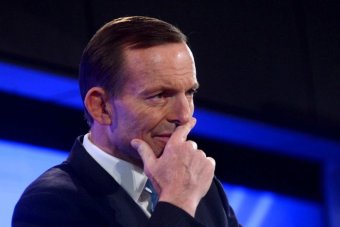

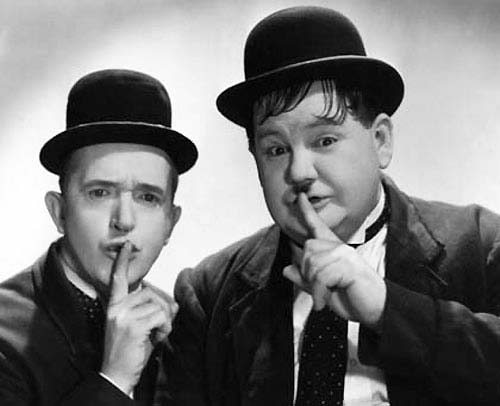
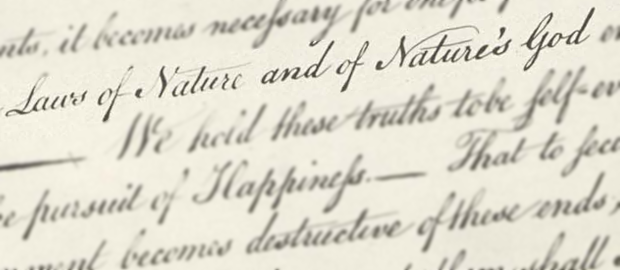
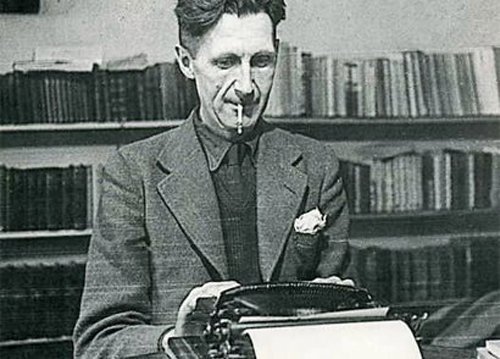
A very adept analysis. No doubt Abbott is a decent man, but if the underlying culture is rotten, his impact will always be limited.
Guys!
What a great piece, you are totally correct, this weekend was good but not great. We should be pleased that Labor is out but not fall for the idea that The Liberals are anything but Liberals. Our work in networking and building up ideas remains as important now as it was a year ago.
In fairness I must say that I found it hard to find a political party that I found acceptable to vote for. So to complain about how far to the left things are really means we haven’t done as much as we need too. For Traditionalists patience should be seen as a virtue and we should use this time to continue our work. Because until Traditionalists are around to be voted for we cannot really complain that no one supports us, the truth is no one got the chance to support or reject us.
Our goals need to be three fold
1) Create a Traditionalist Movement
2) Create a Traditionalist Political Movement
3) Change the Culture
For now we need to keep building up and to point out where the new Governments policies are Liberal instead of being Conservative.
Mark Moncrieff
This is the best we will do for the foreseeable future, sorry but that’s the facts of life in the 21st.
Be thankful that the Evil Party is gone!
Be that as it may, we deserve better from our alleged betters, and this is not time to rest on our laurels, it is time to be demanding and active. That is the way the Left managed to shift the culture over decades past. It is not reasonable to expect changes in either direction without pressure being applied. The results may indeed be the best under the circumstances, but that does not mean that we should not strive for better.
The Australian public does not vote-in oppositions; they throw out governments. The simple fact is that the Australian Labor Party lost all credibility with the electorate when they brought back Kevin Rudd as their leader and he made a desperate grab for popularity, promising anything and everything which he thought might keep him in power.
The electorate started to loose faith in the ALP when they created a strange coalition with the Australian Greens to deal with a hung parliament and a minority government. The ALP’s credibility further diminished when it was seen that the Greens were calling the shots. Julia Gillard promised no carbon tax, but the Greens forced the ALP to bring one in.
There has also been a huge backlash against the Greens. In this election, they’ve lost 3.4% of the primary vote. Down from 11.7% to 8.4% of the primary vote, they’ve effectively lost a quarter of their supporters since the last election. The biggest swing against them was in Tasmania. Not surprisingly after the Greens prevented them from opening a paper mill and created a huge unemployment problem.
The reality of the matter is this: The electorate see no credibility in the ALP because they see that the ALP was being controlled by a minority party that no-one would ever want to see in government. The electorate showed us that they have no confidence in the ALP.
“The best hope for Australia is the ballot box and good education.”
– General Sir John Monash